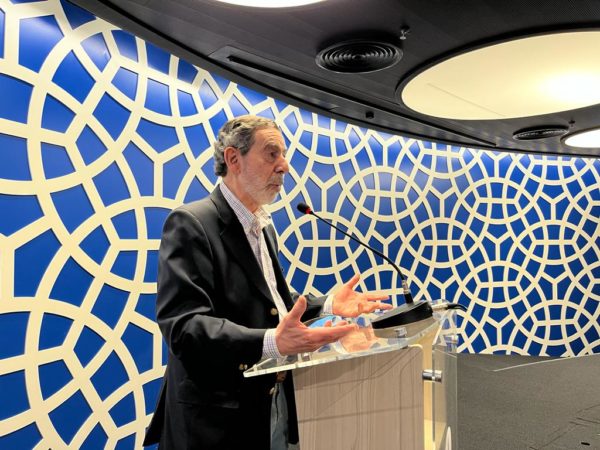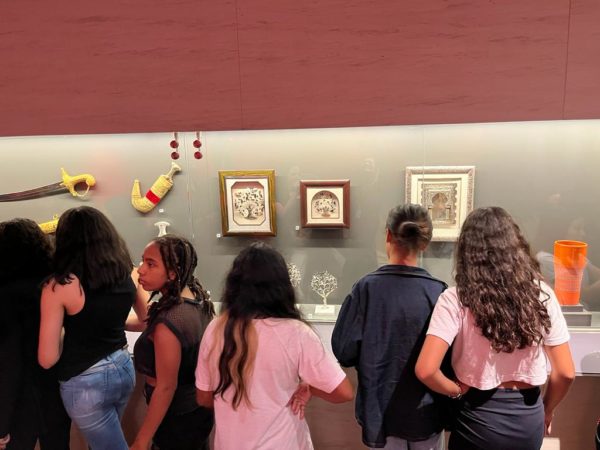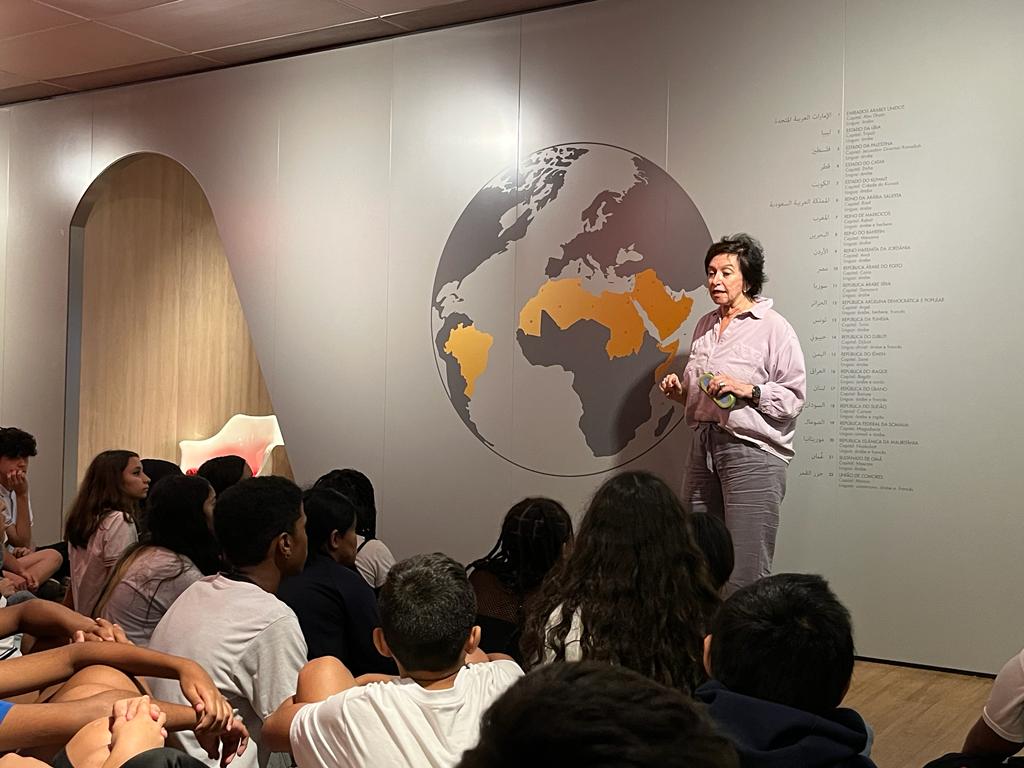São Paulo – This Wednesday (19) afternoon, the Arab Brazilian Chamber of Commerce (ABCC) received the visit of around 40 children assisted by the Syrian Home for Children (Lar Sírio Pró-infância) at its headquarters, on Avenida Paulista, in the capital city of São Paulo. The group of children, mostly around ten years old, was received by the president of the entity, Osmar Chohfi, and Marketing vice president Silvia Antibas.
In a brief and didactic presentation, ambassador Chohfi spoke about the ABCC’s work and said his father was one of the founders of the Syrian Home for Children and the institution he currently presides over.

“The ABCC helps Brazil export products to the Arabs and import what we need from them,” he said. He explained Brazil sells a lot of food to the Arab countries, which mostly have a desertic climate, while the Arabs mainly sell oil and fertilizers to Brazil.
Antibas, who is also the ABCC’s cultural director and a historian, led a class on Arab countries and Arab immigration to Brazil. The children sat in front of the map on one of the entity’s walls, and Antibas said what aroused her curiosity as a child were the stories of her father, a Lebanese, and her mother, a Syrian.
She said during Ottoman rule, Arabs from the regions now called Syria and Lebanon left their homes and took ships to look for a better life. The ship stopped in Europe and, from there, sailed to Brazil.
“But why didn’t they stay in Europe?” A little boy asked. Antibas said many wanted to come to Brazil because it was seen as a land full of opportunities for trade and industrialization. “In Brazil, there were jobs, land, open trade,” she said.

The Arabs arrived here in the late 19th century through the ports of Santos, Rio de Janeiro, and Salvador. Many families became wealthy from trade. The fabric sector, at that time, was dominated by the Arabs, who also participated in the country’s industrialization process.
“These wealthy families then decided to give back to the community by creating hospitals and nursing homes. At that point in the story, the Syrian Home for Children, founded by Arabs from the city of Homs, Syria, came to be. The same people also founded Club Homs here on Paulista Avenue. These families set up the home to help not only the Arab community but also Brazilians, and this year, it celebrates its 100th anniversary,” said Antibas.
The book ‘Lar Sírio Pró-Infância, 100 anos’ [‘100 Years of the Syrian Home for Children’] was written by Antibas and will be released in May.
The historian recalled the Arabs invested a lot in their children’s education, and each generation studied more than the previous one. The Arabs also influenced music, the Portuguese language, and many areas of Brazilian culture. Silvia recalled several words in the Portuguese language come from Arabic, such as lettuce (alface), tailor (alfaiate), sofa (sofá), and haberdashery (armarinho), among others.
The socio-educational coordinator of the Syrian Home for Children, Marina Hannun, told ANBA the Home started as an orphanage for the Syrian community. The founders bought land in the Tatuapé neighborhood, where it is still located today, and started receiving Syrian children and, over time, Brazilian children too.

Since 2015, the Syrian Home for Children has ceased to be an orphanage and started receiving children for complementary activities before or after school, with classes in the morning and the afternoon, serving children aged 4 to 14, and with a professional training program for teenagers over 14. There, they have lunch, do sports activities, and have computer science, cooking, music, and art classes, among others.
Today, the Syrian Home for Children has two children from Syrian families with refugee status. The others are Brazilian. “We have a partnership with [the Social Service for Industry] SESI and public schools; we serve low-income families who live in neighborhoods such as Tatuapé, Itaquera, Guaianazes, and São Miguel. We also receive the children of workers of the neighborhood, and, in total, there are about 5,000 children,” said Hannun.
After the history lecture, the children took a tour of the ABCC offices and got to know the entire space; lastly, they ate a snack and received gifts. The visit had the support of the Federation of Muslim Associations of Brazil (FAMBRAS).
Translated by Elúsio Brasileiro




